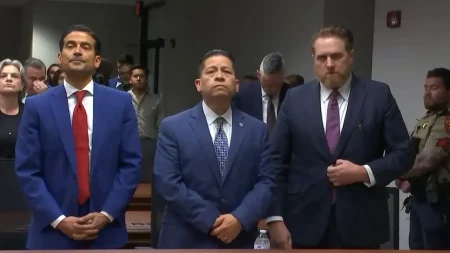Qatar’s Ceasefire Negotiations Threatened by Recent Attack
Recent events have cast a shadow over Qatar’s diplomatic efforts to negotiate a ceasefire in the ongoing conflict. The Gulf nation has been working diligently to bring parties to the negotiating table, leveraging its unique position as a mediator in regional disputes. However, a recent attack has threatened to undermine these peace initiatives, potentially derailing months of careful diplomacy and relationship building.
Qatar has established itself as an important diplomatic intermediary in the region, often stepping in where other nations cannot or will not engage. Drawing on its relationships with various parties involved in the conflict, Qatari diplomats have been shuttling between capitals, hosting talks, and creating channels for dialogue when direct communication seemed impossible. These efforts reflect Qatar’s broader foreign policy strategy of positioning itself as a neutral arbiter in complex regional disputes, allowing it to maintain relations with opposing sides while working toward peaceful resolutions.
The timing of the attack couldn’t be worse for the peace process, coming just as tentative progress was being made in establishing common ground between the conflicting parties. The violence has not only resulted in immediate casualties and destruction but has also eroded the fragile trust that Qatari negotiators had been carefully cultivating. Peace talks require confidence-building measures and gradual steps toward de-escalation, and this attack threatens to reset the clock on months of diplomatic groundwork, potentially hardening positions on all sides and making compromise more difficult to achieve.
The ripple effects of this disruption extend beyond the immediate conflict zone, potentially impacting regional stability and international relations. Qatar’s efforts have been supported by various international stakeholders who recognize the importance of finding a diplomatic solution to the conflict. These partners now face the challenge of keeping diplomatic channels open while responding to the attack in ways that don’t further inflame tensions. The diplomatic balancing act has become considerably more difficult, requiring even more skilled navigation of the competing interests and security concerns at play.
Despite these setbacks, Qatari officials have indicated their commitment to continuing peace efforts, understanding that diplomatic solutions become even more crucial during periods of heightened tension. Their approach involves acknowledging the legitimate security concerns of all parties while emphasizing that military escalation will only lead to further suffering and instability. Qatar’s mediators are working to prevent a complete breakdown in communication, maintaining contact with key figures on all sides and exploring ways to restore momentum toward a ceasefire agreement that addresses core issues driving the conflict.
The coming weeks will be critical in determining whether Qatar’s peace initiative can weather this storm or whether the region will slide into deeper conflict. Success will require not only Qatar’s continued diplomatic engagement but also support from the international community in creating incentives for de-escalation and consequences for further violence. While the path forward has become more complicated, the fundamentals driving the need for a negotiated settlement remain unchanged—the human, economic, and security costs of continued conflict are simply too high for all involved. Qatar’s diplomats face a daunting challenge, but their persistence in pursuing peace may yet provide a foundation for eventual resolution.










